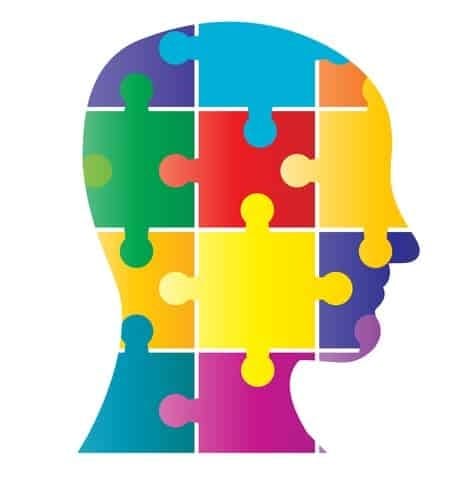Everyone is Multiple People

I subscribe to a model of human understanding that sees each person as a combination of multiple people.
When you’re dealing with someone, you have to know which person you’re actually talking to. It’s not always so extreme, of course, but it often is.
Here are some people (traits) that my friends are/have:
Self-confident elitist
Will give shirt off of back to fire victim
Democratic Socialist in politics
Extremely Republican in some traditional beliefs
Uncomfortable with those who break from tradition
Finds humor in pretend bigotry
Makes fun of the unfortunate
Could be considered a bleeding-heart liberal by some
These are a lot of personality traits that could apply to a lot of different people, but what if I told you this is one person?
And what if I told you that I find it useful to observe which of these a person is at any given moment?
Lots of people are like this. Most people, in fact.
I have a set of these traits, just like the list above. I won’t give it here because I’m not proud of some of them, but they’re all over the spectrum.
The key to the model
The value of this model is realizing that people get into moods, for whatever reason, and different parts of themselves come out.
You could be talking to someone while their friend is dying of cancer, and they’re the nicest, kindest person, who is compassionate with their friends and saves kittens from trees.
Then you see that same person at work the next day and they are all about stomping out the competition, and they’re willing to say nasty things about them to get people to switch.
Or maybe you have a friend one day who is all about helping people out in their lives, and the next day they believe that if they were worth helping they would have helped themselves by now.
One way to see this is that people are complex. They have different moods. And you should just expect some variation.
That’s one way to see it, but seeing them as distinct people is more useful because it allows you to interact with the person more efficiently.
The key is to realize that the other aspects of the personality are diminished in these states. The dominant character now showing is, for all intents and purposes, a separate personality who’s now in control of your friend.
So deal with that person, and in terms that they understand.
You can, of course, try to transition them from one mode to another, and that can be effective if done properly, but in most cases you are going to have to deal with the mode that the person is currently in.
Too theoretical?
If this sounds too theoretical I ask you to think about the people you know. See if you can isolate 3-5 main PEOPLE in them. I bet you can.
Maybe they’re a giving family person, but also a narcissist, and also a racist, but also someone who gives their time to charities, and also someone who loves violent video games.
And when they go off into their moods, or modes, you know you have to let it play out because that’s just what’s happening.
Watch for it.
Example
Let me give you a tangible case in point.
I have a friend who, when we’re together one on one, is the kindest guy you can meet. He really respects me and values my input.
But if we’re in a large group, and especially if there are girls around, he’ll say things like:
Decided to wear that hat twice in a row, huh?
Or…after I describe that I have D&D gear in my trunk, along with a skateboard, he’ll say something like:
Whoa ladies, don’t all run at once!
These are super highschoolish moves designed to put others down and—in turn—raise himself up. And when the people go away he goes back to being the same nice guy.
Now does this sound familiar?
It’s because he is both of those people, and they are in control of his body at different times based on different stimuli and context.
What next?
It’s hard to help other people with their own behavior. Very few people are good enough friends to talk about such things with each other.
But for ourselves, we should start with a simple question:
If I were to break myself into separate people, who would they be?
Once you’ve answered that, move to the second question:
Do I like all of these people?
And if you don’t, ask the third question?
If I don’t like this guy and that guy, then why do I allow them to occupy my body and speak in my name?
Indeed.
Summary
We are all multiple people, and we’re usually not aware, and seldom in control, over which of our modes or personalities are currently in charge.
Try to be more aware of it in others so that you can communicate more effectively with them, and try to be more aware of it in yourself so you can make sure the only people running your body are those you approve of.